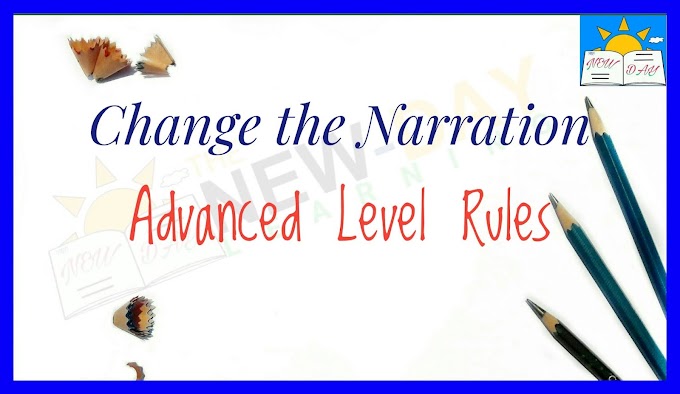Adverb কী?
একটি adverb হল এমন একটি শব্দ যেটি verb বা adjective বা adverb বা একটি clause বা একটি sentence – এর দোষ, গুণ, অবস্থা, সংখ্যা, পরিমাণ, আকার, আকৃতি বোঝায়, অর্থাৎ বিশেষিত করে। কিন্তু কখনোই noun বা pronoun -কে qualify (বিশেষিত) করে না।একটি Adverb যখন –
Verb -কে qualify করে: She talks gently. [বাক্যে Gently (adv.) টি talks (verb) কে বিশেষিত করছে।]
Adverb -কে qualify করে: He draws very beautifully. [Very (adv.) টি অন্য adverb beautifully- কে বিশেষিত করছে ।]
Adjective -কে qualify করে: They are very skilful players. [Very (adv.) টি skilful adjective- কে বিশেষিত করছে ।]
একটি clause -কে qualify করে: He tried hard, but unfortunately he could not survive in the field. [Unfortunately (adv.) টি he could not survive in the field -clause কে বিশেষিত করছে ( যেখানে ঘটনাটিকে 'দুর্ভাগ্যজনক' বলা হয়েছে।)]
একটি sentence-কে qualify করে: Undoubtedly, he is going to bag the gold medal. [Undoubtedly (adv.) টি পুরো sentence -কে বিশেষিত করছে।]
Kinds of Adverb —
Adverbs of manner:
[কিছু করা বা হওয়ার ধরণকে বোঝায় এই adverb দ্বারা।]Badly (খুব), ill(খারাপ), soundly (গভীর ভাবে / সম্পূর্ণরূপে), highly (অতিশয়), briefly (সংক্ষেপে), wisely (বুদ্ধিমানের মতো), slowly (ধীরে), rapidly (দ্রুত), how (যেভাবে), aloud (জোরে), well (ভালো), thus (এই ভাবে), so (খুব বেশি), immediately (খুব শীঘ্রই) etc.
এরা transitive verb এর আগে অথবা পরে বসে, তবে সবসময়ই intransitive verb -এর পরে বসে।
Ex:
They came out quickly. [came out হল Intransitive verb, তাই quickly (adv.) তার পরেই বসেছে।]
He briefly explained the story.
He explained the story briefly.
[Explained হল transitive verb, তাই briefly (adv.) কে আগে ও পরে বসিয়ে দেখানো হয়েছে।]
Adverbs of time:
Today (আজ), yesterday (গতকাল), tomorrow (আগামী কাল), now (এখন), then সেই সময়), ago (আগে), when (যখন), before (আগে), ever (সবসময়), never (কখনো না), while (যখন), once (একদা), sometime (কখনো কখনো) , soon (শীঘ্রই), already (ইতিমধ্যে) etc.Ex:
Last year the great man got married and today is his first marriage anniversary.
Adverb of frequency:
প্রায় সময় বোঝাতে এই adverb ব্যবহৃত হয়।এই adverb দুই ধরনের, যথা –
Indefinite frequency –
অনির্দিষ্ট সময় বোঝাতে ব্যবহার করা হয়।Frequently (প্রায়), usually (সাধারণত) normally (সাধারণত), always (সবসময়), seldom (খুব কম সময়) etc.
Ex:-
Those children frequently visit the zoo.
I seldom meet my friends.
Definite frequency –
নির্দিষ্ট সময় বোঝাতে ব্যবহার করা হয়।Hourly (প্রতি ঘণ্টায়), daily (প্রতিদিন), weekly(প্রতি সপ্তাহে), monthly(প্রতি মাসে / মাসে একবার), twice (দু-বার), thrice (তিনবার), yearly(প্রতি বছর /বছরে একবার). These are generally used at the end of a sentence. এদের সাধারণত বাক্যের শেষে ব্যবহার করা হয়।
Ex:
They receive scholarship yearly.
She practices handwriting daily.
Adverb of place:
স্থানকে বোঝানো হয়।Here (এখানে), there (ওখানে), where (যেখানে), everywhere (সব জায়গায়), near (কাছে), away (দূরে), above (উঁচুতে), bellow (নীচে), upward (ওপর দিকে), backward (পিছন দিকে).
Ex -
There are three chairs in the room.
We study here in the school.
The children are playing everywhere in the garden.
Adverb of quantity:
Enough (যথেষ্ট), much (অনেক), less (কম), too (অনেক/খুব), half (অর্ধেক), little (সামান্য) etc.Ex -
You have slept enough.
I talk little about my personal life.
Adverb of degree:
মাত্রা বোঝাতে যে adverb ব্যবহার করা হয়।Very, almost, fully, enough etc.
Ex -
She is a very good dancer. (এখানে very adverb টি good -এর মাত্রাকে বোঝাচ্ছে।)
The project is almost complete.
Adverb of affirmation or negation:
হ্যাঁ অথবা না বোঝানো হয় এই adverb দ্বারা।উদাহরণ:
Yes, no, not, certainly (নিশ্চিতভাবে), undoubtedly (নিঃসন্দেহে), perhaps (হয়তো), really (সত্যিই), possibly (সম্ভবত) etc.
ব্যবহার-
প্র- Do you need a cup of coffee? (তোমার কি কফি দরকার?)
উ: Yes, I need (হ্যাঁ, দরকার)./
No, I don't need it (না, আমার দরকার নেই)./
Certainly I need (অবশ্যই আমার দরকার).
Adverbial phrases:
কিছু শব্দগুচ্ছ যারা বাক্যের মধ্যে adverb হিসেবে কাজ করে। যেমন-
- Heart and soul (সম্পূর্ণ বিশ্বাসের সঙ্গে)
I was with the team heart and soul.
- Bag and baggage (তল্পি তল্পা)
Come with your bag and baggage.
- now and then (মাঝে মাঝেই)
As we went along the road and beautiful flowers now and then appeared.
- up and down (এদিক ওদিক আসা-যাওয়া করা)
He walks up and down the room.
- In a minute (খুব শীঘ্রই)
I am coming in a minute.
- by and by (ক্রমশ)
She will tell me by and by.
- In time (নির্দিষ্ট সময়ের মধ্যে)
I shall be there in time.
- In no time (সঙ্গে সঙ্গে)
He starts running in no time.
- In short (সংক্ষেপে)
Tell us about the incident in short.
- In vain (নিস্ফল)
I convince him in vain
- By no means (কিছুতেই না)
Abhishek is, by no means, a cheater.
- Off and on (অনিয়মিত ভাবে/ মাঝে মধ্যে) etc.
I meet my parents off and on.Use of Certain words as adverbs :
Enough:
Enough কে adjective এবং adverb – দুই হিসেবেই ব্যবহার করা যায়। Adjective হিসেবে enough কে noun এর আগে এবং adverb হিসেবে enough কে adjective এর পরে ব্যবহার করা হয়।যেমন-
I have enough courage to face them. (তাদের সম্মুখীন হওয়ার জন্য আমার যথেষ্ট সাহস আছে।)
Enough এখানে Adjective রূপে noun courage এর আগে ব্যবহৃত হয়েছে।
He is tall enough to be selected for the post. (ও চাকরিতে সিলেক্ট হবার জন্য যথেষ্ট লম্বা।)
Enough এখানে adverb রূপে adjective tall -এর পরে ব্যবহৃত হয়েছে।
You are intelligent enough to handle the situation. (এই পরিস্থিতি নিয়ন্ত্রণ করার জন্য তুমি যথেষ্ট বুদ্ধিমান)
Enough এখানে adverb রূপে adjective intelligent -এর পরে ব্যবহৃত হয়েছে।
The:
‘The’ একটি বাক্যে adverb হিসেবে দু-বার ব্যবহার করা যায় – একবার relative adverb of quantity হিসেবে এবং তার পূর্বে আরেক বার demonstrative adverb of quantity হিসেবে।বাংলায় এর অর্থ- যত...তত।
যেমন—
Ex:- The more you work hard, the more you near success. (তুমি যত বেশি কঠোর পরিশ্রম করবে, তত বেশি সফলতার কাছে পৌঁছাবে।)
The sooner the better. (যত তাড়াতাড়ি হবে তত ভালো।)
There:
There কখনো কখনো adverb হিসেবে ব্যবহৃত হয়।Ex:-
There are five children playing in the garden. (পাঁচটি শিশু বাগানে খেলছে)
There was a house there. (ওখানে একটা বাড়ি ছিল)
উপরের বাক্য দুটিতে there হল adverb.





%20(1).webp)


%20(1).webp)
0 Comments
Leave a comment